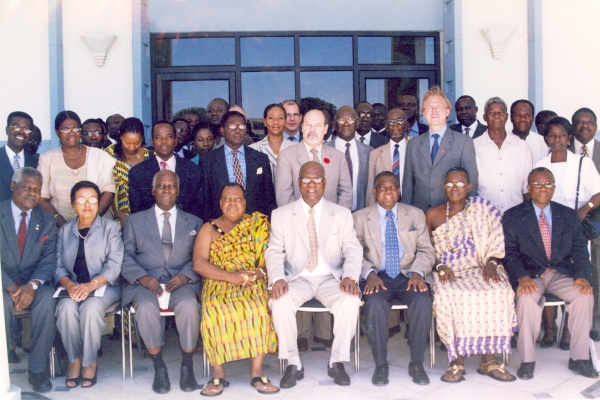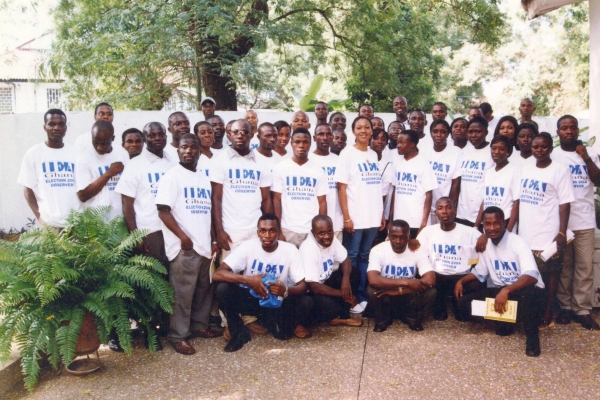Building and strengthening the capacity of key institutions of state and civil society.
Parliament
Recognizing that strong credible institutions would serve as a vehicle for good governance and economic development, The IEA designed programmes to provide technical assistance to key institutions of state, particularly Parliament:

The Speakers Breakfast Forum: As part of our efforts to demystify Parliament and enhance its engagement with the public, The IEA initiated the Speakers Breakfast Forum in1996. The objective of the Speakers Breakfast Forum was to ensure that issues of national importance were discussed in Parliament. Through this forum, The IEA succeeded in having burning issues discussed by the highest levels of Parliament with opinion leaders, academia, civil society and the business community. This not only allowed the public to learn about Parliament’s views on these issues, but also allowed Parliament to hear the peoples’ views on the issues. The results of this healthy collaboration opened the door for The IEA to submit and present its critique on the Serious Fraud Office Bill in Parliament which subsequently influenced the final Act. Ultimately, the Speakers Breakfast Forum served as an avenue to influence the reform agenda.
Orientation Programme: Since the first Parliament under the 4th Republican Constitution (the Justice D.F. Annan Parliament) The IEA designed orientation programmes to introduce MPs to the workings of Parliament to help them understand their role as parliamentarians. To date new MPs continue to receive orientation along the lines originally proposed by The IEA.
Technical Workshops: Together with the leadership of
Parliament, The IEA identified critical documents to be discussed and
reviewed during each session of the House, and provided technical
support to MPs by organizing weekend schools and workshops. This was
geared towards equipping them with the requisite knowledge, skills and
tools and enabled MPs to contribute meaningfully when the document was
being discussed on the floor of the House. To date, this has become a
standard procedure where Parliament holds retreats and workshops on
critical documents for MPs.
Legislative Research Assistants
Programme: Fully aware that research is a vital ingredient for policy
formulation, The IEA in 1994 recruited and trained young university
graduates in the rudiments of research and policy analysis. These
assistants were attached to the Committees of the House to assist
Parliamentarians with research. Today a number of Legislative Research
Assistants have become permanent clerks of the House.
Civil Society

Bearing in mind the role of civil society in safeguarding our democracy, The IEA introduced into the Ghanaian political cycle the need for an independent election observation in 1996. In furtherance of this objective, The IEA established the National Association of Domestic Election Observers (NADEO) to monitor the elections of 1996. Since then, other observer groups have been formed along those same lines.